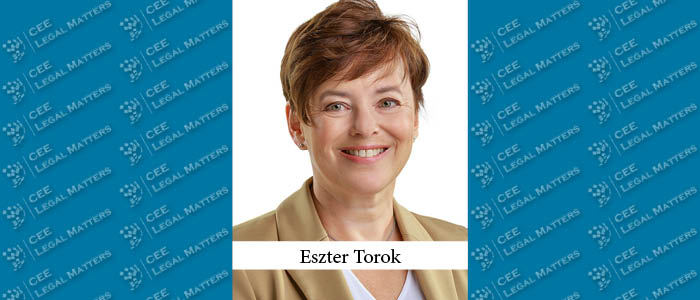From a significant downturn in project financing to promising developments in green energy, particularly wind, CMS Partner Eszter Torok shares valuable insights into the complexities of the Hungarian market against the backdrop of shifting economic and regulatory landscapes.
"Over the last three years, since the onset of COVID-19, Hungary has experienced a downturn in project financing activities, accompanied by high interest rates and inflation," Torok begins. "However, recent months have shown promising signs. For instance, the national bank’s official interest rate, which stood at 13% in 2023, has begun to decrease, currently sitting below 10% since last December. This decline in interest rates has revitalized mortgage lending in the first quarter of 2024, although project financing remains cautious, with investors adopting a wait-and-see approach," she explains.
Focusing on specific sectors, Torok turns the discussion to green energy. "Renewable energy, particularly wind and solar financing, is garnering significant attention. While solar energy projects, supported by subsidies, have been a focal point in the past, wind energy was relatively neglected until the end of 2023," she shares. However, changes in regulations have now made wind projects more feasible. "Previously, wind farms could not be constructed within 12 kilometers of populated areas, a challenging requirement given Hungary’s dense population and relatively small area. Since the end of last year, the restriction has been reduced to just 700 meters, opening new possibilities for wind energy development, particularly in the northwest of Hungary," she explains, adding that there are still relatively detailed and complicated regulations to keep in mind.
Putting this shift in the energy sector into perspective, Torok assesses the broader economic conditions in Hungary: "Hungary’s economic growth has been sluggish and heavily reliant on foreign investments, particularly from Germany, in the automotive sector with major players like BMW, Mercedes, and Audi operating plants here," she says. "More recently, we’ve seen a surge in investments from Chinese and Korean firms into electric vehicle battery manufacturing, indicating a shift towards alternative technologies." Despite these developments, "the local economy struggles under a high public debt load and, with upcoming EU parliamentary and municipal elections, economic measures to address this debt are anticipated later in the year," she reports.
And, focusing on these elections – with both cycles due in June of this year – it is interesting to observe what economic policies could come to pass, according to Torok. "The first half of 2024 has, somewhat expectedly, seen few economic restrictions due to the electoral period. However, post-election, we might witness tax increases or other fiscal measures aimed at reducing the national debt," she explains. "These changes could influence investment trends, particularly in sectors like renewable energy and technology, which have seen significant interest." It is not unreasonable to assume that "investors will be keenly watching these developments, hoping for stability and clear policies that would support continued investment," she posits.
Looking at the road ahead, Torok feels that the remainder of 2024 could be impactful. "If the government implements favorable policies post-elections, there might be an acceleration both in green energy projects and more traditional sectors of foreign interest." However, she notes, "any restrictive fiscal policies could dampen this momentum." Still, an important mark has been made with relaxing wind energy investment regulations, and Torok concludes by reiterating that it is a "positive development to which investors had been looking forward."


